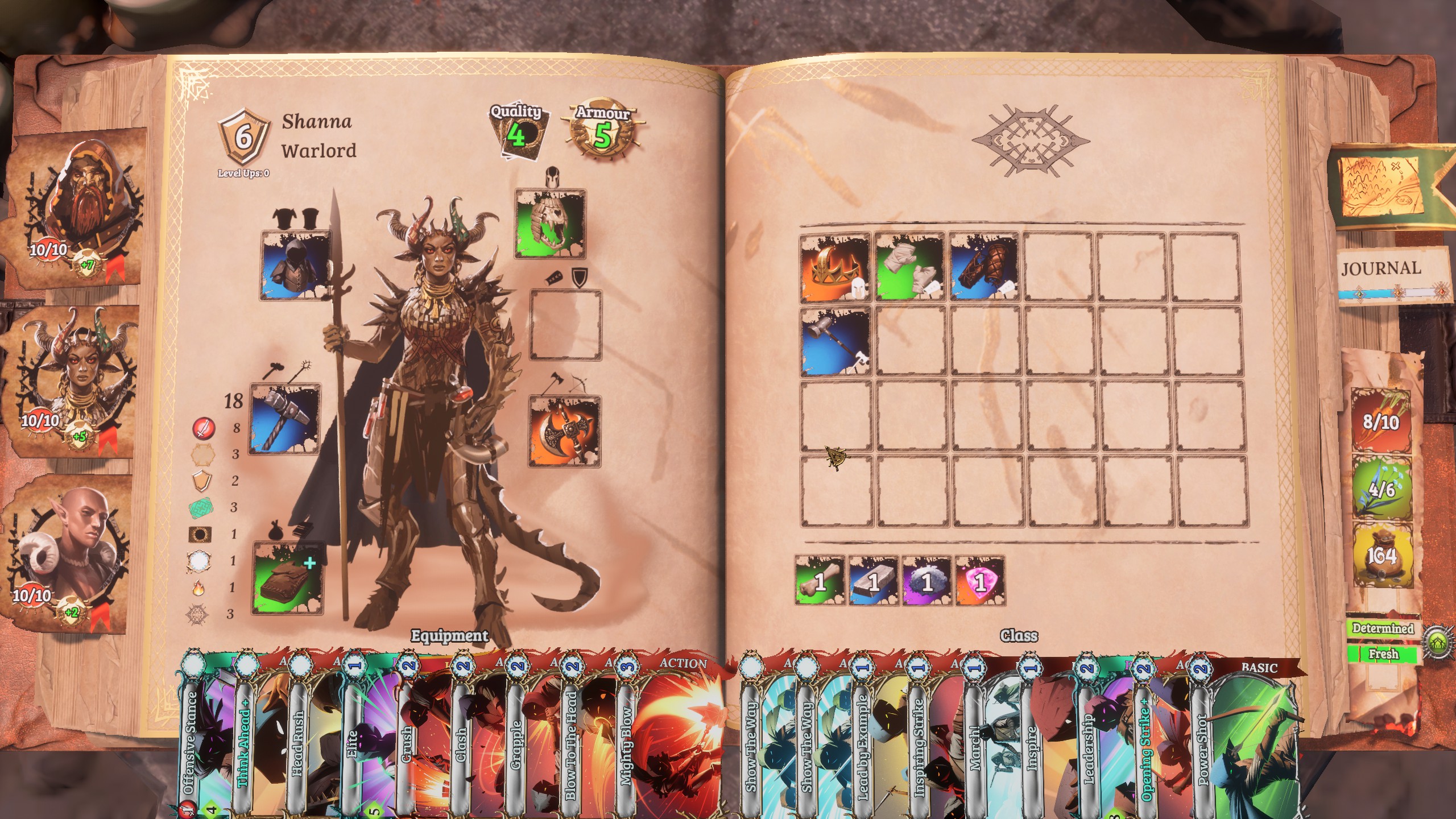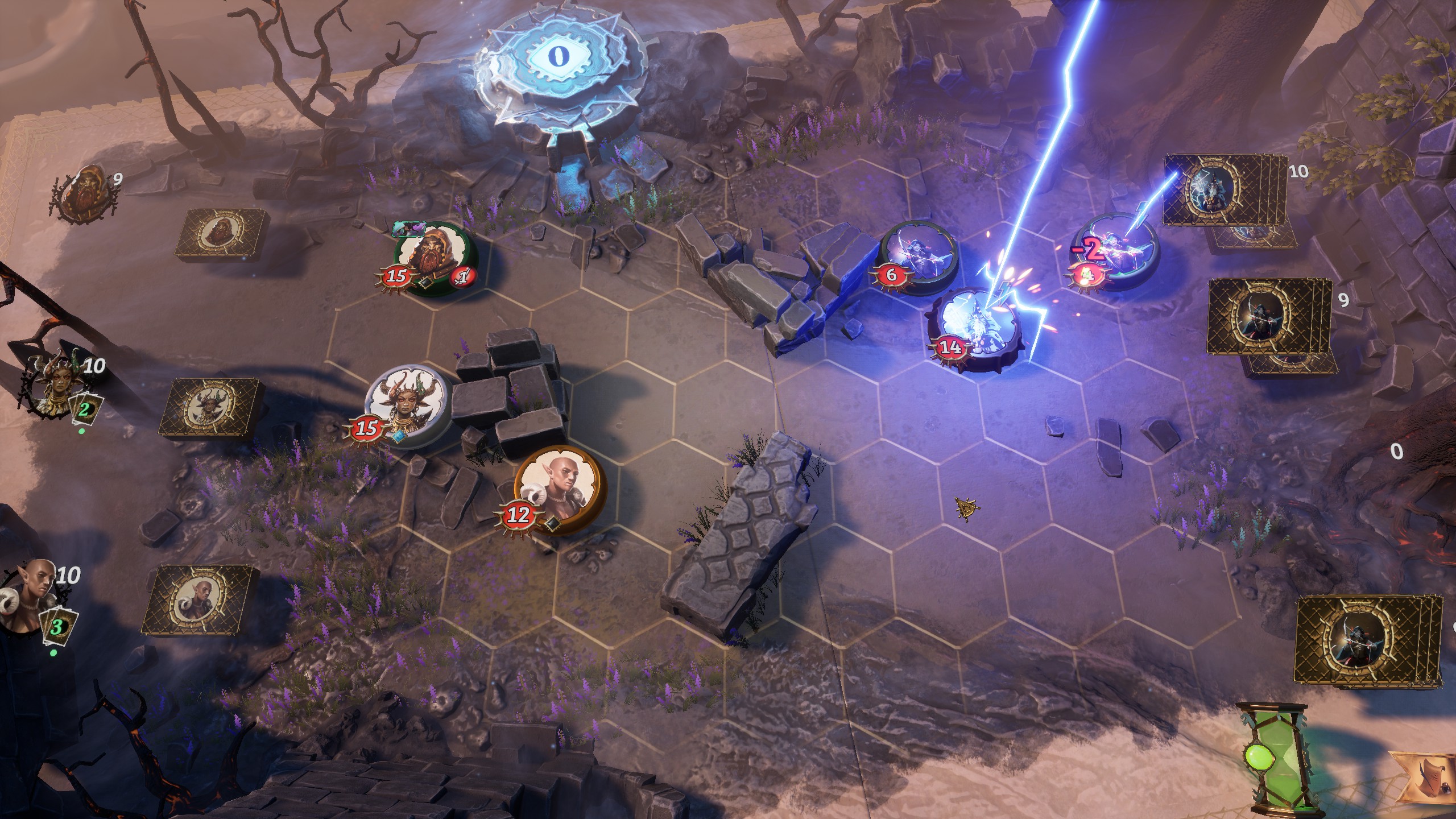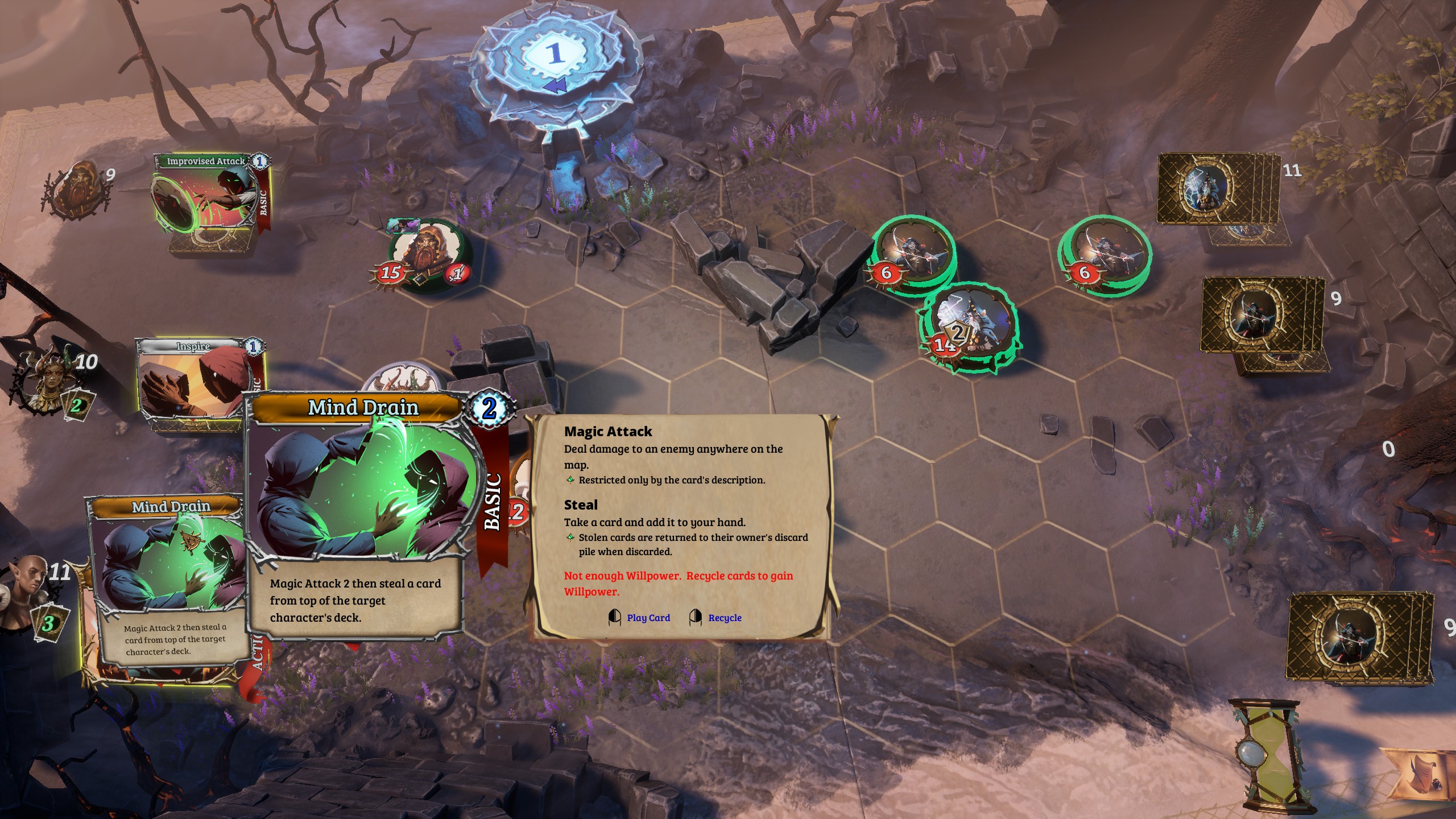Trials of Fire review | PC Gamer - vieirascul1936
Our Finding of fact
Trials of Kindle's heel of features may read like a videogame word salad, but the ensuant combination makes for a fine RPG feast.
PC Gamer Verdict
Trials of Fire's list of features may read like a videogame word salad, but the resultant combination makes for a fine RPG feast.
Need to bed
What is it? Procedural illusion roguelike with turned-founded, CCG combat.
Anticipate to pay up £15/$20
Release April 9, 2021 (for version 1.0)
Developer Whatboy Games
Publishing company Whatboy Games
Reviewed on AMD Ryzen 5 3600, Nvidia GeForce 2080 Super, 32 GB RAM
Multiplayer No more
Link Constituted site
Connected paper, Trials of Terminat is everything I despise. I preceptor't like turn-based roguelikes. I don't like card battlers, and I really don't like anything involving hexagons—the Poochie of the shape worldwide. Trials of Fire features all of these, which in any sensible reality makes me the next-to-last person who should be reviewing information technology. But if you've looked come out the window late, through the daze of coronavirus toward the icecap-melting sunbathe, you'll give detected reality died on the way back to its home planet both time agone. Intrinsically, I'm unsurprised to discover that Trials of Fire is flipping excellent.
Set in a blighted phantasy land where wild Conans would gayly graze, Trials of Fire sees you pick a trio of adventurers from an eventual pool of 9, ahead embarking upon a series of set quests across procedurally generated maps. Trials of Discharge is presented in literal storybook fashion, with the game map out sketched across the pages of a sinewy sword and necromancy tome, while your characters are depicted as pop-fly paper figures who scroll crossways the cracked roads and moth-eaten plains of Ashe.
Between you and your important objectives are regular points of interest, ranging from elflike settlements to ancient ruins, cursed temples, prowling monsters and excitable forests. Encounters are initially presented in journal format, with the game describing the situation earlier offering a range of choices. Sometimes these choices require a skill check that results in a advantage if successful, or damages your characters if you fail. Another times, your decisions will trigger a fight, in which case the world map disappears, and a height-polish, 3D combat map rises from the rule book's pages.

Combat is a blend of turn-based strategy and fierce card duelling. The map is hex-based, with both your party and your opponents portrayed as beefy, colourful counters that slide toward one other, occasionally taking shelter behind the sprinkling of cover crosswise the mapping. Happening your turn, your characters draw three cards apiece from their respective deck, which change widely depending on their class. The default characters are Rastin, a hunter World Health Organization specialises in ranged battle, with a sideline in summoning, Jarrah, a damage-dealing melee fighter aircraft, and Malkin, an weather condition mage.
What's immediately striking about Trials of Fire is how good the combat feels. When you embroil come out of the closet one of Rastin's ranged attacks to target an enemy, an pointer flies out from his counter and thuds into your opponent, causing it to skitter happening its infinite like a spun coin. When a theatrical role is killed, their counter bursts like a grenade, scattering shrapnel crossways the board. Trials of Fire does a unrealistic problem of evoking the abilities on the cards, which goes a long way to selling the mettlesome to a CCG sceptic like me.
Nonetheless while this makes Trials of Fire more than like a sho piquant, information technology isn't what makes information technology special. That would be how cards simultaneously act as abilities and a resource. By default, playing a card requires you to expend a resource known atomic number 3 possession. There are a smattering of cards that generate willpower such as Advance, which besides enables you to move forward. Just the primary way of acquiring self-will is to sacrifice cards in your hand. This puddle hindquarters be haggard from aside wholly triad party members unless you're using possession for movement, in which case the sacrificed card must come directly from that character's deck.

Hence, of the 9 cards in your hand, only around half of them are likely to make up played in a standard round. You must figure out which cards to play and when. Jarrah might be your main damage bargainer, e.g., just it often takes her a turn or two to get into close range. So brawl you focus your efforts on pushing her forward, OR spend your willpower on Rastin's and Malkin's ranged abilities?
What's immediately prominent about Trials of Fire is how good the combat feels
The tactical scenarios that ensue from this are interesting, with each new hand bringing new challenges. The carte du jour battling is promote bolstered by how the RPG systems tie into it. Winning battles and completing quests levels up your characters, letting you either upgrade cards in your current knock down, or replace them with new, to a greater extent powerful abilities. Likewise, new weapons and equipment will too get ahead your deck. A breastplate power provide defensive card game like Mole, which adds +7 to your defence when played, while a new bow might give Rastin the Headshot power, which will instantly kill an enemy if the attack drops them to 3 HP or less. The real treasures, though, are the cards that provide unloosen actions, extra movement, and particularly those that let your play more card game. My best-loved card is probably Teamwork, which, when used on an friend, draws an extra card into the actor's pass for every card your friend plays.
Yet the RPG elements can also work against you. Travelling crosswise the world correspondenc tires your political party out, and the more tired your party is, the more your deck will satisfy with cards like Spent and Fagged, which serve no purport past than preventive high your hand. Similarly, too much time worn-out exploring testament lessen party morale, meaning you can't scour the land for every scrap of fora.

Balancing natural selection with progress is one of the game's main challenges, especially since reaching a pursuit objective unremarkably triggers a tough boss fight that will tryout your affinity with your deck. If your party gets destroyed, the quest is over. This stern Be a little galling, especially if you're go up the closing. But some the main Trials of Fire quest and the subsidiary Traditional knowledge quests are designed to be realised in two-to-four hours. Meantime, failure still grants experience, unlocking rising cards for your existing company, and new characters similar the Witch, who specialises in stealing enemy card game and using them against your foes.
For a game that borrows so many different ideas and mechanism, Trials of Burn down is impressively broadloom. The only area where information technology could be more rational is the artistic production. For me, the depiction of Ashe as this scoured and darned land doesn't completely colloidal gel with the bold, boardgame-like colors of your counters and card game. I particularly disfavour the ludicrously chunky buttons on the game menus, which look like a soft toy will pop out the screen and tattle a nursery rhyme if you push them.
More broadly, the storytelling suffers as a consequence of the game structure. Piece non startlingly original, Trials of Fire's wild and desolate fantasy world is convincing, while the encounters are written in pacey and piquant prose. Yet the quests themselves are straightforward MacGuffin hunts, while your party characters possess little personality inaccurate of battle. Admittedly, this is in keeping with classic sword and sorcery fiction, which tends to prioritise eventful action over character development. Withal, erst you've accomplished the main Trials of Fire quest, you've just about seen what the game has to offer narratively, and patc there are other quests available, it'll Be the new cards and new characters that keep you performin.
Overall though, these are minor blemishes. Trials of Fire is a taut and hefty RPG roguelike that successfully distils the action and mystique of sword and black magic into card battling form.
Trials of Fire
Trials of Fire's leaning of features may read like-minded a videogame word salad, merely the resulting combination makes for a fine RPG feast.
Source: https://www.pcgamer.com/trials-of-fire-review/
Posted by: vieirascul1936.blogspot.com


0 Response to "Trials of Fire review | PC Gamer - vieirascul1936"
Post a Comment